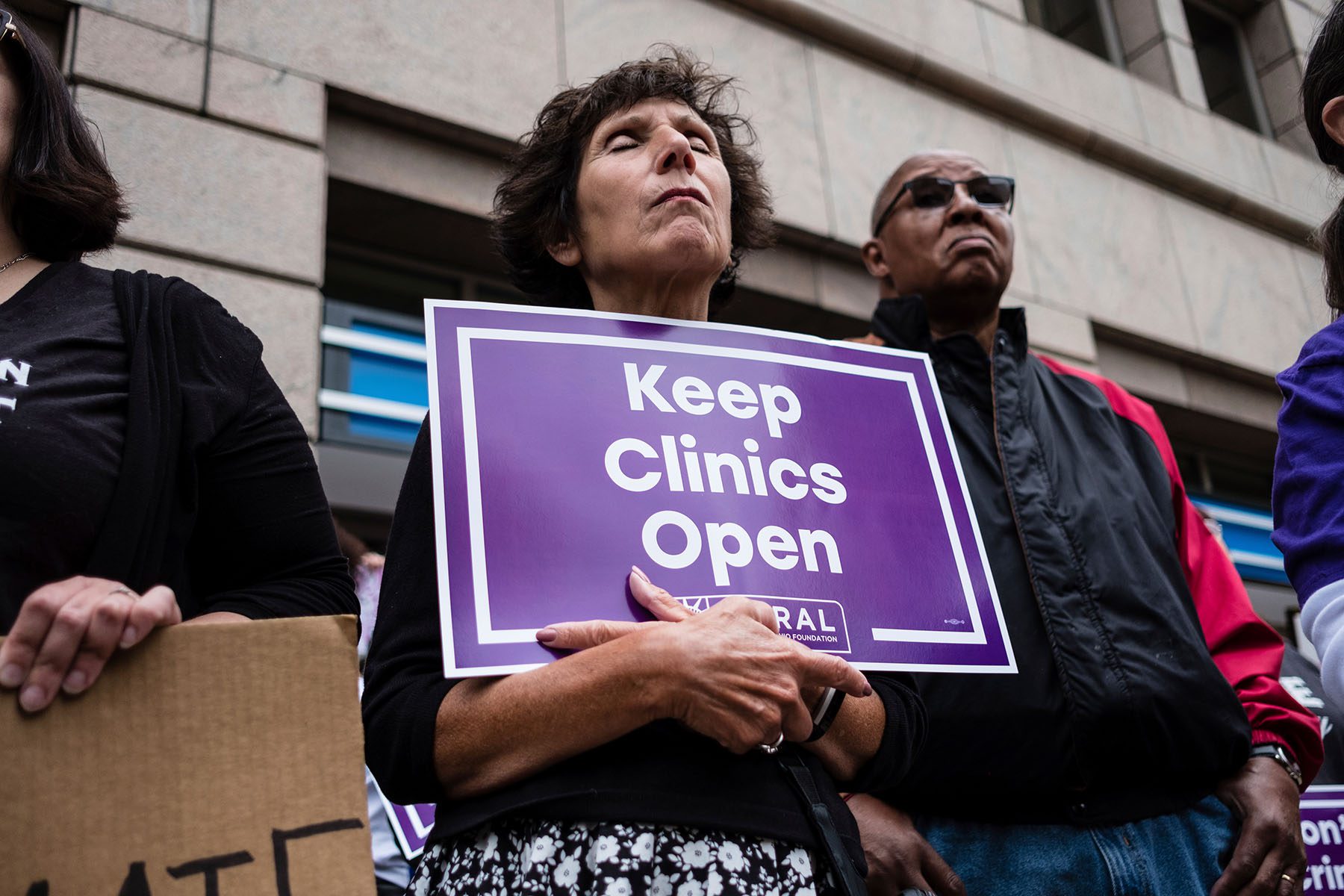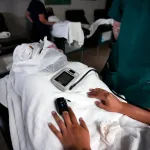When the decision in Dobbs v. Jackson Women’s Health Organization came down on Friday morning, staff at Preterm, an abortion clinic in Cleveland, called patients with appointments scheduled for Saturday to let them know that despite the ruling, their appointments still stood. But events in Ohio quickly overtook them. Not even 12 hours after the Dobbs ruling came down, the Preterm staff was back on the phone canceling the same appointments they’d assured patients were safe.
Ohio had passed a law effectively banning abortion after six weeks of pregnancy in 2019, but an injunction prevented it from taking effect. Hours after the Dobbs ruling, which overturned Roe v. Wade and allowed states to decide their level of abortion, a judge granted Ohio’s request to lift the injunction. Sri Thakkilapati, the executive director of Preterm, said she and her staff stayed at the clinic until after 11 that night making calls. Ninety to 95 percent of the 5,000 patients Preterm serves each year are past six weeks of pregnancy when they seek abortions.
“When we called people this morning, they cried with gratitude. They were so scared,” Thakkilapati said on Friday. That night was entirely different. “Some people were crying in panic,” she said.
By Wednesday morning, ACLU, the ACLU of Ohio, Planned Parenthood Federation of America and the law firm WilmerHale had filed a lawsuit in the Ohio Supreme Court seeking to block the state’s six-week ban on abortion. The plaintiffs say the ban will disproportionately impact people of color, low-income people, rural residents, immigrants, people with disabilities and the LGBTQ+ community. Black women already face higher rates of maternal mortality in Ohio — a situation that stands to only worsen as a result of the newly enacted ban.
-
More abortion coverage
- ‘How soon do you need me to be there?’: For a short window, these three states that banned abortions can resume services
- Patients sat in abortion clinic waiting rooms as Roe fell. They all had to be turned away.
- ‘This day really is about her future’: Why these parents and their children are rallying for abortion rights
Through the rapidly shifting legal landscape in Ohio, clinics are still trying to provide care as best they can to their patients.
Thakkilapati told The 19th that while she had expected the state to file to have the injunction on the six-week ban lifted when Roe fell, she — and many of her peers in Ohio abortion clinics — thought they would have at least two weeks to prepare. Instead, they had to scramble.
Of the 40 patients scheduled for an abortion at Preterm on June 25, only two were able to be seen. Because of Ohio’s 24-hour mandatory waiting period for abortions, the clinic already knew which patients would no longer be able to be seen under the six-week ban.
On Saturday morning, Thakkilapati said Preterm was operating as a “skeletal clinic, with just a couple of people.” Still, the phone kept ringing as staff continued to make calls for patients already on the books for the next week to make sure they knew about the new law and its impact.
“It was really sad when we were calling people,” she said. We had people just crying in fear and utter dejection, in panic. People were enraged, some were in disbelief still.”
The staff members themselves also struggled. “We’re still processing,” Thakkilapati said.
Thakkilapati said the six-week ban taking effect is just the latest blow her staff has faced after an incredibly hard past few years. Three-quarters of their current employees are people who stayed with the clinic throughout the pandemic, even after the state tried to close abortion clinics during the days of “shelter in place.” Ultimately, abortion providers won their fight to keep their doors open.

“In the early days when we were all wiping down our groceries and worried we may die if we left the house, the staff still came in,” Thakkilapati said. “These are people dedicated to abortion access.”
It felt like all that struggle culminated when the six-week ban was allowed to go into effect.
“We thought we could give people a little hope when we called them Friday morning,” Thakkilapati said. “That even though Roe had been overturned, we could give them a little breathing room. It felt very hard to have worked so hard through COVID, all of this time to make sure people could have uninterrupted service. And now…” her voice broke off, leaving the sentence unfinished.
Preterm currently has patients scheduled through July 1. The clinic is attempting to see anyone who is under six weeks as quickly as possible.
“It’s been a race against the clock,” Thakkilapati said. “Our staff has been working 24/7.”
That includes working with Women Have Options, an Ohio-based abortion fund. The staff at Preterm were able to direct patients they could no longer see to the organization, which would be able to help provide funds for them to travel out of state.
“It helped ease people’s anxiety somewhat, but for some it was just too logistically hard, if not impossible, to go out of state,” Thakkilapati said. Still, she is concerned about what the cost of out-of-state travel will now do to these same patients.
“It’s very hard to afford to travel out of state, take a day out of work, lose that income, pay for someone to watch your children,” she said. “Two-thirds of the people we see have kids. Now they will have to figure out what to do with their kids if they need to travel out of state. It used to be hard enough to figure out what you’re going to do with your kids half a day if you’re traveling an hour to come to our clinic.”
With Preterm being in Cleveland, the majority of their patients are now needing to seek care in either Pittsburgh or Detroit. Both cities are approximately a 2.5-hour drive away.

Further complicating things is that with the injunction being lifted so quickly, abortion clinics in Ohio haven’t had the time to try to develop relationships with clinics in other states to help faciliate these referrals. “Developing that infrastructure and setting up referral networks — that’s not established. These clinics are now taking in a huge influx of patients from Ohio and they were also not expecting this influx so quickly.”
Thakkilapati said Preterm and other clinics in the state would continue to provide as much care as they possibly can under the current state laws. But she cannot stop thinking about the immediacy of Ohio’s six-week ban taking effect.
“This feels like an unnecessary cruelty, to have this imposed so quickly without notice,” she said. “We thought we would be able to give our patients some notice.”







